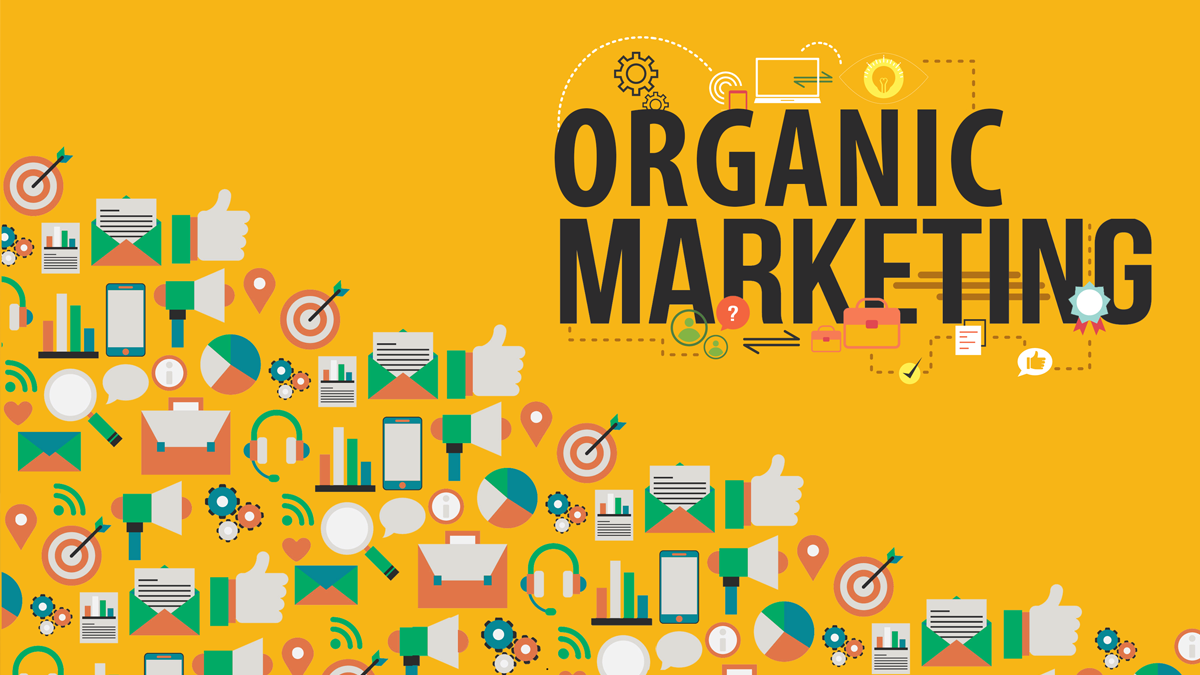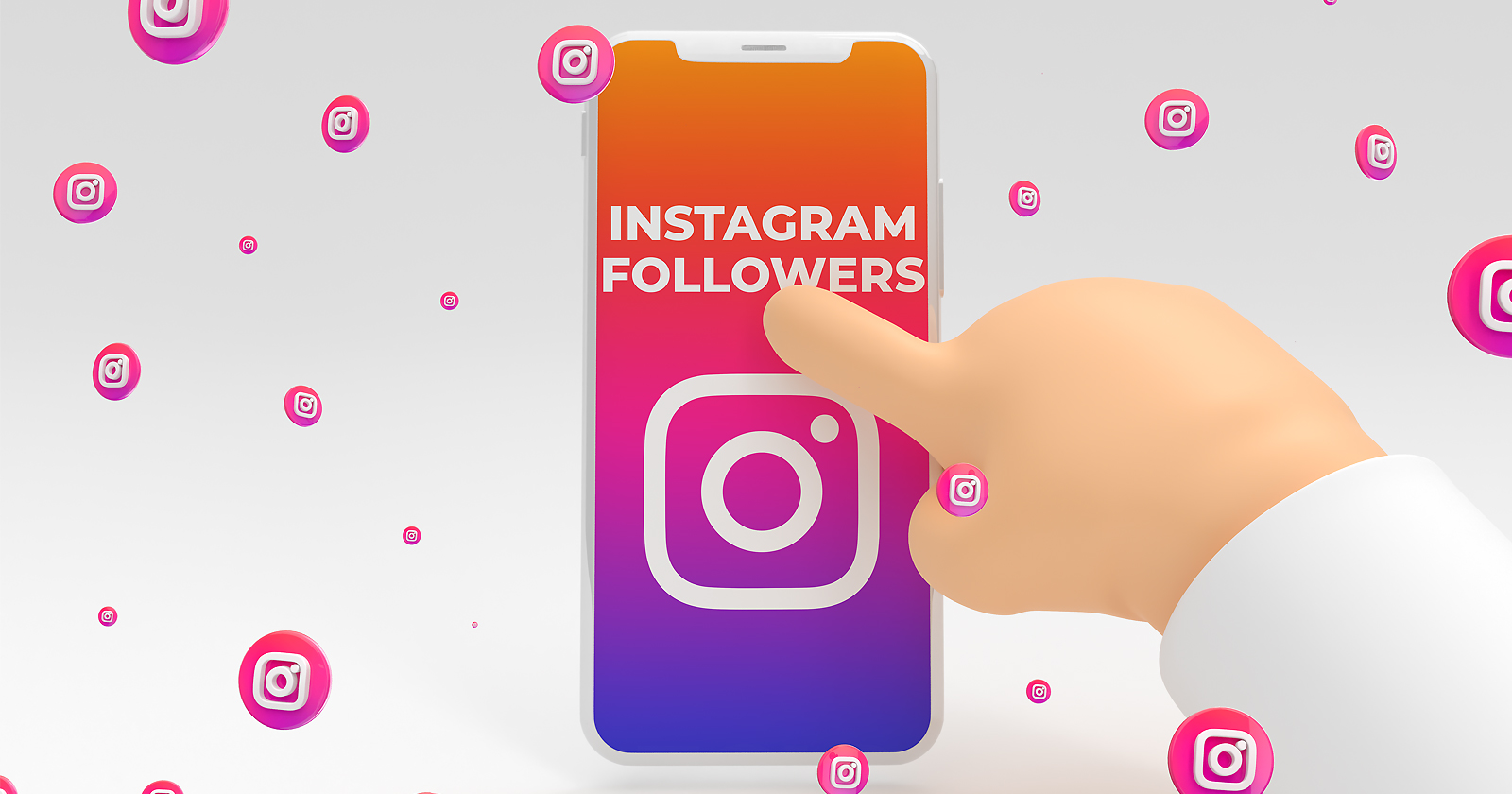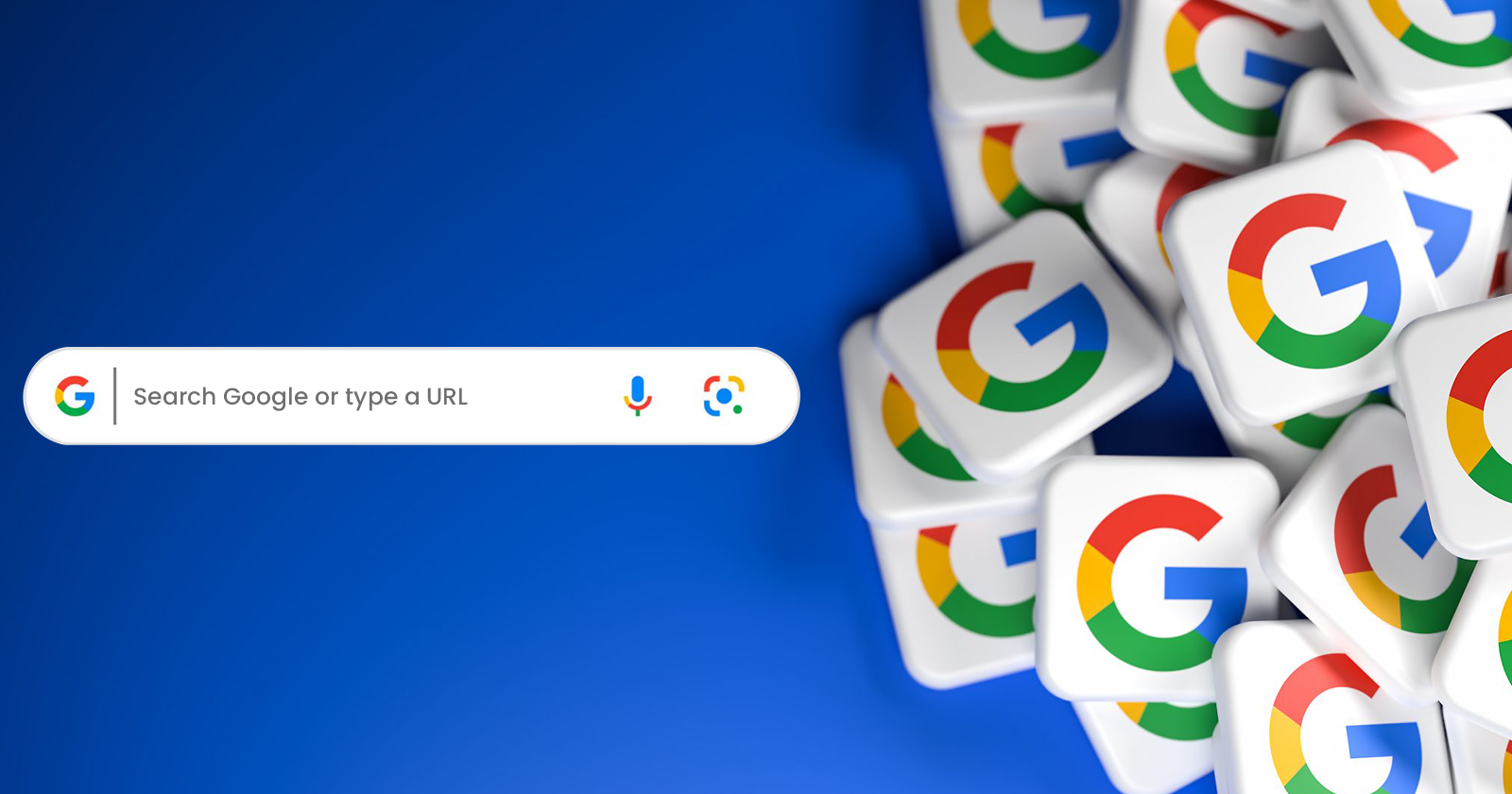Organic marketing not only improves your brand’s visibility but also amplifies the effectiveness of your paid marketing efforts. This synergy occurs because you can retarget individuals who have initially found your website organically, using paid advertisements on platforms like social media or search engines. But what is organic marketing? It’s a strategy that focuses on attracting customers naturally, through content creation, SEO, and social media engagement, rather than through paid advertisements.
The primary aim of organic marketing is to drive traffic to your website. While social media channels can serve this purpose, implementing Search Engine Optimization (SEO) is often the most effective approach. For reasons that we’ll delve into further in this post, it’s clear that businesses should invest in a comprehensive organic marketing strategy.
What is Organic Marketing?
Organic marketing is a strategy designed to attract visitors to your website naturally, as opposed to employing paid marketing tactics. By offering useful and informative content, it aims to build relationships, drive traffic to landing pages and websites, enhance brand awareness, and generate fresh leads.
Over time, organic marketing innately drives traffic. It encompasses everything you don’t spend money on directly, including guest posts, case studies, blog posts, and unpaid tweets. Its performance often surpasses that of sponsored posts and paid advertising.
The incorporation of user-generated content is arguably the finest form of organic marketing, unmatched by any other method. It’s crucial to note that “organic marketing” does not imply the absence of any monetary investment.
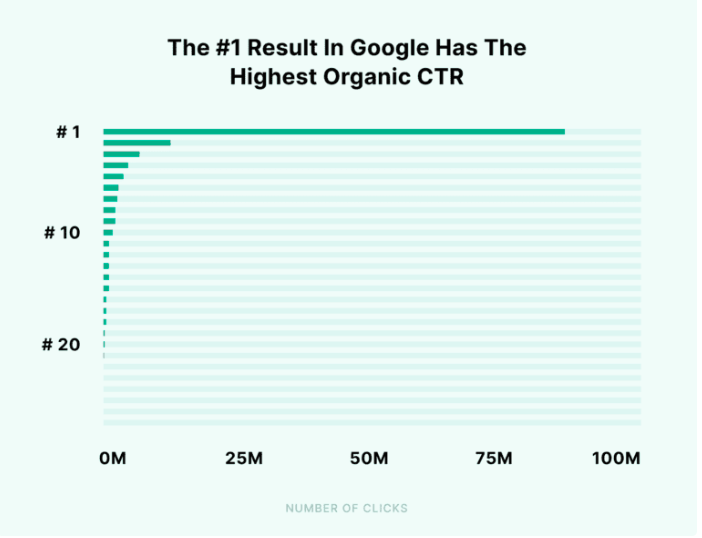
SEO services can help you improve your website’s visibility and ranking on search engine results pages through various strategies such as keyword optimization, content creation, and backlinking. This ultimately leads to increased organic traffic, better brand recognition, and higher conversion rates for your business.
Why Market Your Business Organically?
The principal aim of organic marketing is to populate the top of a sales funnel. Grasping its worth can sometimes be challenging. At its core, an organic marketing strategy seeks to establish an emotional bond with your customers through engaging and informative content. As a result, your brand is likely to be their first recall when making a purchase, significantly influencing conversion rates.
Businesses relying solely on paid advertising often risk squandering money due to reduced customer engagement and brand awareness. In such scenarios, organic marketing can serve as a supportive strategy to the paid approach. This type of marketing strategy not only facilitates people in finding your website but also converts them into followers. Subsequently, advertisements targeting these individuals can considerably decrease the cost per click (CPC) and enhance the return on investment (ROI).
Also Read: 12 Best DIY SEO Tips For Small Businesses
Effective organic marketing generates enduring traffic sources for your website, naturally attracting customers over time. Moreover, it signals to search engines that your website is pertinent to the needs of your target audience.
By optimizing all your content for search engines, you can enhance your discoverability and attract more qualified clients. Once your organic marketing strategy is refined, you will have a straightforward, long-lasting method to amplify brand awareness. Thanks to effective organic marketing, customers will naturally gravitate towards your business over time.
What are the Available Options for Organic Marketing Services?
Your objective market and the service or product being sold will figure out which stage is best for you. Your organic marketing strategy will incorporate these platforms, which are the most widely used.
Organic Social Media Marketing
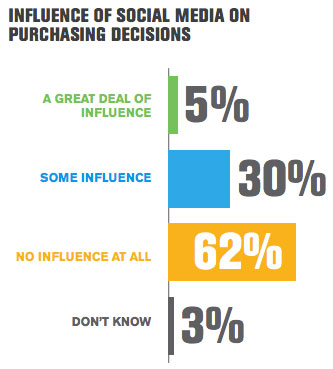

Facebook, as the largest social network, offers a myriad of opportunities for marketers to directly connect with customers. Business owners can form groups and network with peers in their field. Furthermore, by joining groups relevant to their industry, they can gain expertise and establish authority in their subject matter. Remarkably, all of this can be achieved without resorting to any paid advertising strategy.

Instagram has quickly surpassed Facebook in popularity among younger generations. Small and medium businesses also do well on this platform. It can also be used to quickly and inexpensively establish a community of like-minded individuals. You only need to be good at creative writing and graphic design.

Users of Pinterest, an additional image-based platform, can save their inspirations to boards for later reference. Among all social media, it has the highest conversion rate and is especially useful for visual-oriented businesses like fashion and interior design. Once more, you can work on it without spending money on paid advertising.

LinkedIn, a social platform for professionals, works for business networking. Long form, news style content that addresses a problem or a specific issue is preferred by LinkedIn users. LinkedIn is the best platform for B2B content sharing and business-to-business connections. As a result, it is the most effective organic marketing channel for selling products and services to other businesses.

Although Snapchat isn’t as popular as other social networks, users can share short videos or photos with their friends on it. Promoting goods for the Generation Z generation and younger is a great idea. Again, there are no costs associated with advertising.
Organic Public Relations and Influencer Marketing
- Digital Public Relations
Digital PR and organic marketing are closely related. Getting your content shared by editors and bloggers of reputable online publications is necessary. A digital public relations campaign has the potential to result in significant expansion if it is able to reach well-known and reliable publications.
- Influencer Marketing
Influencer marketing is evolving into a highly competitive realm. Amid the prevalence of paid-for followers and likes, locating authentic influencers can be challenging. However, by positioning yourself as a thought leader and producing expert-level content, you can certainly attract significant traffic from people who share your interests or are intrigued by your insights.
Also Read: Affordable SEO Services for Small Businesses- How To Choose an SEO Company
Organic Content Marketing

YouTube appears to be a content channel only, but it ranks second in terms of search engine power only behind Google. You can share videos that are directly related to your business on YouTube. Before making a purchase decision, potential customers can get to know and trust you through this. This is especially useful for services based on knowledge, like coaching and business advice.
- Blogging
A blog can either be a standalone website that links to your products or services, or it could be a section within your existing website. By providing engaging content or information about challenges faced by customers in your niche, you can drive people to your website. Moreover, this platform grants you control over your audience.
- Content Sharing
The two most popular websites for user-generated content (UGC) are Reddit and Quora. Both are useful tools for gaining authority in your niche and driving traffic to your website. Reddit and Quora are more conversational. It is a platform for Q&A in which users can post questions and anyone can answer them. You can use both platforms by looking up questions related to your field and responding in detail.
- SEO
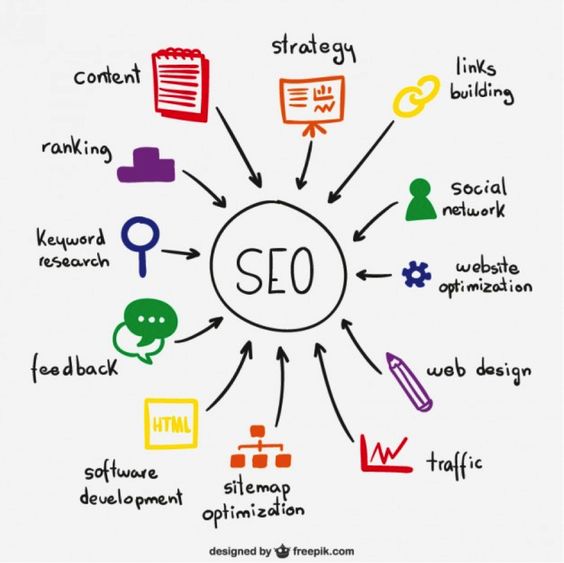
SEO is the process of making your website more search engine friendly. SEO is part of organic digital marketing. Google’s algorithm is intricate and constantly evolving. SEO tactics include content marketing, social media, and technical website optimization.
Importance of Investing in Organic Marketing – Summary
Organic strategies gradually draw customers to your business. Instead of direct advertising to your target audience, you attract them by providing the information they seek. This is also known as inbound marketing. However, remember that this isn’t a quick fix. Organic marketing strategies take time to effectively boost your traffic. Achieving desired results may take months or even years. Nevertheless, the silver lining is that once attained, this performance is enduring. Organic marketing can yield permanent traffic to your website.
Steps to Develop an Organic Marketing Plan
Organic Marketing Plan – Introduction
An organic marketing strategy can persuade a search engine that your website meets the needs of your audience. These methods take a lot of time. We need to make super durable traffic sources that can assist clients with becoming possible clients. Which sources are these?
- Assets and Content of Your Website
The content and assets that you own are your greatest assets. They can yield results for a longer period than you might anticipate, assisting you in garnering search engine traffic. Before you begin crafting content, it’s necessary to generate a list of ideas for the various types of content assets you wish to create.
For instance, if you want to concentrate on blogging, conduct keyword research and analyze your competitors before compiling a list of keywords for posts. You can then begin creating content. However, you will need to conduct in-depth research before deciding how to publish your findings if you want to concentrate on case studies or research. You will need to know which platforms and channels you want to focus on before you can create content.
- Guest Posts and Webinars
Another way to get your content in front of more people is to put it on the website of an influencer or someone related to your industry. Include a link to your content wherever you see fit, but do not overdo it. You can hold a webinar on a topic that is very popular and relevant to your business.
Webinars are a great way to attract new visitors because they allow you to educate your audience while also showcasing your expertise and knowledge. Additionally, you can promote any upcoming live events, such as conferences or workshops, through the webinar.
- Posts on Social Media
Social media is a great way to increase organic traffic. There are a number of social media platforms from which to choose. People will share your content and increase its reach if it is engaging and empathetic. With a link back to your website, tweets or LinkedIn posts will remain live indefinitely and bring new visitors to the site. Be sure to update the information on your social media posts since statistics and pricing data may vary from time to time. You are missing out on a chance to build your brand and reach your audience if you are not active on social media. Your audience should find the content you create and share useful, and it should be good enough for them to want to share it again.
- Join Online Communities
For organic traffic generation, groups and communities are excellent channels. You can gain access to a pool of potential customers through groups. You can inform your clients about upcoming events, new products, and answer any questions they may have. You don’t have to start your own group always; To meet other members of the community, you can join any Facebook or LinkedIn group that is already active.
Provide valuable insights to your target audience by engaging with them. You will attract a lot of attention from potential clients if you take the right approach. Facebook groups will help you learn a lot more about your customers. You can make use of these groups to gather data, exchange knowledge about the industry, learn how to expand your business, and assist your clients.
- Do In-House Organic Marketing
It’s beneficial to keep the majority of your organic marketing efforts in-house since your team, who interacts with your business daily, has a comprehensive understanding of it. However, don’t shy away from outsourcing when necessary. Endeavor to collaborate with professionals who invest time in understanding your audience and provide all the information required to craft the right type of content for your customers. Balancing in-house work and outsourcing according to the specific needs of your current content development is a skill you should master.
Hence, we can define organic marketing as a series of ongoing marketing initiatives. The money you spend in the first month will continue to bring in customers in the long run. Your spending decreases as traffic increases over time, even if you don’t see significant growth in the first month.
Organic Marketing Plan – Process
- Break Down Your Target Audience’s Traffic Interests
Your objective market may be searching for organizations like yours. They might look for “What do you need to solve [X] problem?” on search engines or review sites. Or on the other hand they might follow social media influencers and track hashtags as they continue looking for an improved arrangement. Post the kind of content and where it can be found after you have responded to this question.
- Create a Content Library
Don’t put off building a content library for your website. It is essential to establish a content bank that can serve you even when you do not have anything to publish. Blog posts, podcasts, and videos all fall under this category because they are pieces of content that your audience can access at any time to learn from.
Produce content of high quality for it. Your sales may suffer significantly if your website lacks content. There’s no need to stick to just one kind of content. Videos, infographics, and downloadable assets like white papers and ebooks, in addition to blog posts, are important.
- Optimize Your Website for Organic Search
SEO enables you to rank your website higher on the pages of search engine results and to publish more frequently, both of which result in an increase in organic traffic. SEO is always evolving and complicated. Here are some straightforward suggestions to get you started.
- Verify that each page contains metadata. This makes it possible for search engines to comprehend the goal of your website. Your most relevant keywords and image tags with alt attributes should always be included in title tags
- Optimize for mobile devices. Google now ranks websites based on how well they work on smartphones and tablets
- Use social media marketing to increase your organic reach
Here are some suggestions to share great content assets on your website using social media.
Platform: Which social media platforms bring in the most traffic to your website and who is your target audience? LinkedIn is fundamental for B2B organizations, yet Instagram, Twitter, and Facebook all enjoy their benefits.
Type of Posts: While engagement is great, you need traffic. Which posts bring visitors to your website the most effectively?
Links: Your objective is to generate more revenue and traffic. Your social media posts should always include a link to the website.
Schedule: When do people spend the most time on social media? Utilize the calendar to plan your posts in order to boost traffic.
- Create a Mobile Friendly Site
Ensure that mobile users can easily access your website. Your clients are most likely accessing content on their smartphones, whether they are opening Twitter or listening to a podcast. All of your content needs to be optimized for mobile devices if you want to develop an efficient organic marketing strategy. This necessitates having an accessible website and making sure that the image dimensions are correct for each platform.
- Analyze Your Performance Periodically
To make sure that your organic marketing strategy is working, you need to keep track of the results. It lets you see which of your efforts should be scaled up and whether any part of the strategy is wasting your time. Find out which channels, such as a blog, knowledge base, social media, email drip campaigns, or a YouTube channel, currently bring you the most organic traffic.
After that, consider the best ways for people to find your business and the primary sources from which they make their decisions. Spending time on analyzing the results and feedback of your initial efforts will help you shape the course of your whole organic marketing strategy.
Keep in mind that authentic content that addresses a customer’s needs performs the best, regardless of the tactics and strategies you employ. Therefore, organic marketing allows you to produce valuable content that your audience is eager to engage with and share even if you do not have a significant budget for marketing or a video team.
Pros and Cons of Organic Marketing
Pros
- It aids in building rapport. You can increase customer loyalty and conversion rates by sharing helpful content over time and creating an emotional connection as well as a trusting environment for your customers
- It is economical. When compared to paid channels, organic marketing doesn’t cost much
- It enables your company to achieve success over the long term. You build a solid foundation for growing your business and a solid lead base by using an effective organic strategy to create content-loving customers who spread the word about your brand
Cons
- It won’t help you right away. In a sea of data, organic marketing requires time and effort to stand out. Therefore, organic marketing is not a quick fix if you need money right now
- Its range is limited. Organic marketing is mostly shown to people who follow you and rarely to people who don’t
- It has a lot of competition. The fierce competition for organic sources makes it difficult to differentiate yourself from your rivals
What is the Role of Paid Marketing?
Paid advertising and sponsored social posts may be costly, but their impact is immediate, swiftly boosting traffic irrespective of your business’s phase. New businesses, in particular, can substantially benefit from the support paid strategies offer in shaping their organic approach. Before discontinuing a sponsored campaign, ensure you have ample organic content in place, as paid traffic will diminish as soon as your advertisements cease.
Which Approach Is Better: Organic or Paid Marketing?
Organic marketing methods do not require you to pay for each click on your website. The goal of organic marketing is to attract visitors to your website by providing them with high-quality content at no cost. It functions admirably for small businesses since it doesn’t need an enormous promoting financial plan once you get going. AI-based SEO tools and AI content creation make organic marketing easier, but it takes time and consistency before it pays off.
Paid advertising allows you to selectively target your audience, eliminating the need for everyone to see your message. With paid ads, you can immediately reach customers and instantly see results. Instead of discovering you through social media or searches, your customers will encounter your ads directly. The caveat, however, is that once you stop running your ads, the traffic ceases as well.
The most effective approach combines both organic and paid marketing strategies. While the paid strategy provides a short-term boost in traffic, it’s essential to consistently generate ample organic content over time to sustain these numbers.
Tips for Creating an Organic Marketing Strategy
To help you get real results faster and boost your confidence, here are a few practical suggestions.
Create Relevant Content
When you realize which channels are valuable for your business, create and post the content that will be of great interest to your ideal audience. Conduct a competitive analysis and identify relevant keywords for your sector. If you use email campaigns to promote your content, remember to segment your audience to ensure highly personalized emails for your clients.
Make Your Content Visually Appealing
Visual content remains highly sought-after today and serves as a valuable marketing tool. Visuals can enhance your communication with your audience, so ensure they’re incorporated into your blog and social media posts. This could include images, videos, GIFs, infographics, memes, screenshots, quotes, among other media. Such elements breathe life into your text and help sustain reader attention.
Focus on Customer
Ensure that your organic marketing strategy is focused on your customers. Instead of focusing on how to showcase your brand, consider how to assist your customers. Make your content valuable and appealing to customers’ needs and wants, no matter where you post it, in a blog post or on social media.
Wrapping Up
Your organic marketing strategy should focus primarily on providing your audience with the most value possible. Create content that your audience needs to operate in their industry first, and make selling the secondary objective rather than constantly selling, which is the purpose of paid advertisements. This is the most effective strategy for attracting and retaining customers. It assists you with building mindfulness and reinforces your brand image, empowering you to convert additional leads.
However, your business strategy should not be limited to only organic marketing. Your business will see better results if you use both organic and paid marketing strategies together.
FAQs
Can I rely solely on organic marketing for my business?
At any stage of your business model, organic marketing alone may not bring you the desired results, it is advisable to have a combination of organic and paid marketing.
Is SEO important for organic marketing?
Yes, SEO is a very important factor in the process of organic marketing which will help you have a strong online presence in the days to come.
What is more important for organic marketing?
Content is always the most important factor for any business. You should have a strong quality content asset that you can use to create blogs, articles, emails, infographics and many other content forms.
How long does it take to see results from organic marketing efforts?
Organic marketing is a long-term endeavor that demands patience and consistent effort. Results can fluctuate based on a variety of factors, including industry competitiveness, the quality of content and SEO optimization, audience engagement, and brand reputation.
